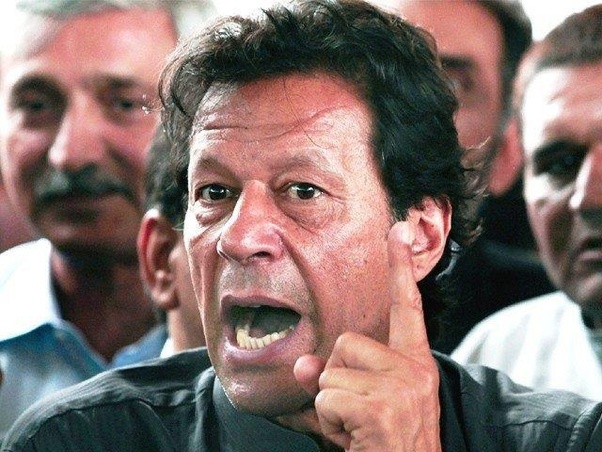“Pakistan’s government is tightening its control of media with laws and oversight bodies that critics say enhance its power to censor and punish journalists. New laws potentially extend control to social media such as YouTube and Twitter, snuffing out investigative journalism and critical commentary,” says a report published in Foreign Policy (FP) magazine.
The report says that Prime Minister Imran Khan “has long had deep antipathy for the media and rarely voices support for journalists who are attacked or disappeared for their work”. It adds that Committee to Protect Journalists (CPJ) Asia programme coordinator, Steven Butler, was denied entry to Pakistan in 2019. “Journalists who find outlets abroad to publish their work and provide income are branded foreign agents intent on the destruction of the Pakistani state,” says the FP report.
“Our society is a democratic society, and people do realise why these journalists are not on air, are not speaking, why their voices are not being heard,” said Asma Shirazi. “These critical voices are a blessing in democracies. But now that they are not there, there is a huge gap. And people know this, they see this, and they know why it is.”
Self-censorship by journalists is an insidious consequence of the harassment, she said. “But we have been here before. We know how to deal with it—we keep fighting.”
PECA Ordinance 2022
In February, the Prevention of Electronic Crimes Amendment (PECA) Ordinance 2022 was promulgated by President Arif Alvi. Talking exclusively to The Current, Information Minister Fawad Chaudhry said, “A person who forwards fake news over WhatsApp can be fined and go to jail under the new law.”
Civil society, political collectives, journalists and rights activists condemned the new PECA Ordinance.
Islamabad High Court (IHC) Chief Justice Athar Minallah said that it seems like no one told the premier that there are laws for contempt other than PECA. “It seems like PM Khan was not assisted correctly over PECA Ordinance,” said Justice Minallah, adding that the law is used against critics here.
PM Khan defends PECA Ordinance
“The PECA law was made in 2016. We are only amending it,” said PM Khan on Monday. He said that “filth” such as child pornography was being shared on social media. He also accused journalists of taking money and blackmail.
Joint statement by Amnesty International and Human Rights Watch
On Monday, Amnesty International and Human Rights Watch (HRW) said in a joint statement that the government’s amendment to its cybercrimes act “is the latest in a concerted campaign to restrict freedom of expression and stifle dissent”.
“PECA has been used to silence freedom of expression on the pretext of combating ‘fake news,’ cybercrime, and misinformation,” said Nadia Rahman, acting deputy regional director for South Asia at Amnesty International. “This amendment not only violates the Pakistan Constitution, but also puts anyone who questions the government or other state institutions at further risk. It particularly endangers journalists, human rights defenders, and political opponents who run the risk of prosecution for merely doing their jobs.”
“The Prevention of Electronic Crimes Act neither protects the public from legitimate cybercrime concerns nor respects fundamental human rights,” said Patricia Gossman, Asia associate director at Human Rights Watch. “The new amendments will further embed violations of basic rights with a thin veneer of legality.”







